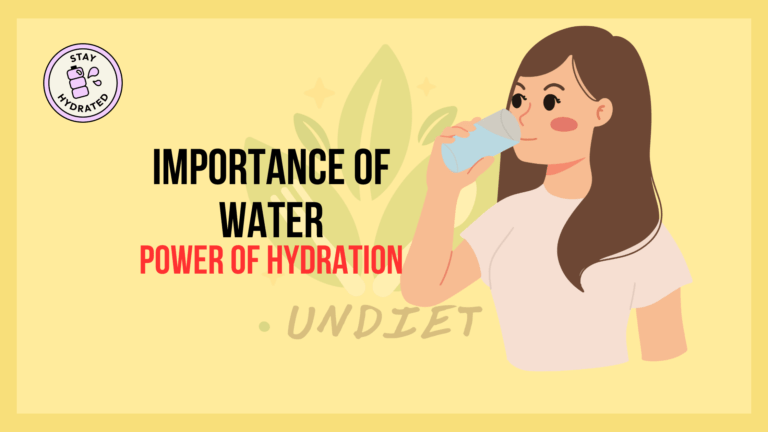Dive Into Diet Pepsi Nutrition Facts: Complete 2024 Guide
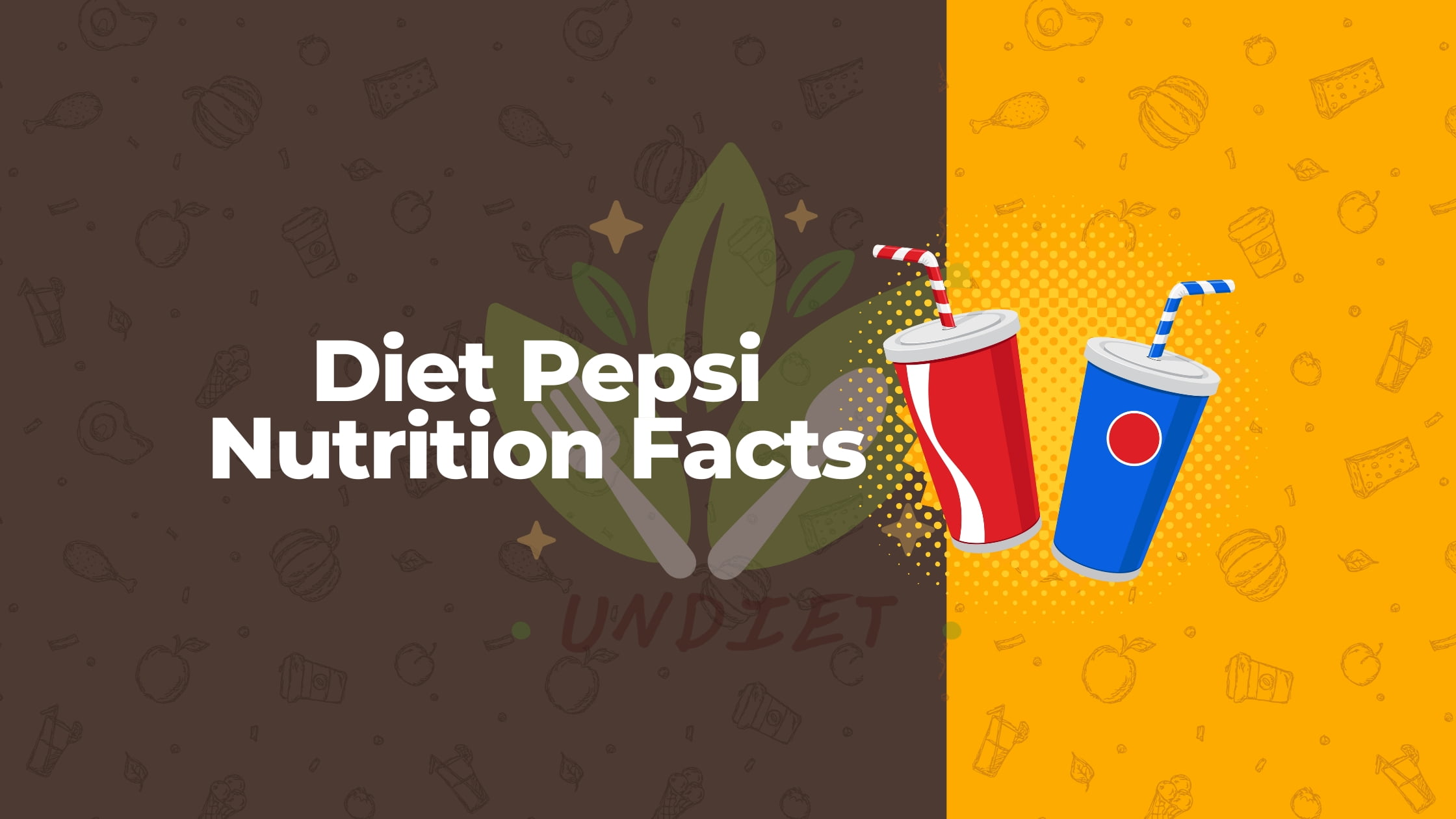
Do you want to know about Diet Pepsi Nutrition Facts? Are you a fan of Diet Pepsi but curious about its nutrition facts and ingredients? In this blog, we will unpack everything you need to know about Diet Pepsi. From the unique selling proposition to the ingredients and nutritional profile, we have got you covered. We will also dive into the calorie count of Diet Pepsi and analyze if it is zero calories.
Additionally, we will discuss the potential health benefits and risks of consuming Diet Pepsi, as well as its impact on weight management. Lastly, we will answer the question- Is Diet Pepsi a healthier alternative to regular Pepsi? So sit tight and read on to find out all you need to know about your favorite drink!
Unpacking Diet Pepsi: A Closer Look
The phrase “Zero-Calorie Elixir” is often used to describe drinks that are low in calories or calorie-free, making them a popular choice for those looking to maintain a healthy weight or reduce their sugar intake. These elixirs can come in the form of flavored water, tea, or even carbonated drinks with zero sugar and artificial sweeteners. While these beverages may be an attractive option for some, it’s important to remember that they should not replace essential nutrients from a balanced diet. It’s always best to consult with a healthcare professional before making any drastic changes to your diet.
Brief Overview of Diet Pepsi
When it comes to indulging in our favorite treats, guilt often follows. However, there are ways to enjoy delicious snacks without the added guilt. Opting for healthier versions of classic treats such as dark chocolate or baked chips can satisfy cravings while also being more nutritious. Additionally, practicing moderation and balancing indulgences with a well-rounded diet and regular exercise can help create a guilt-free approach to snacking.
The Unique Selling Proposition of Diet Pepsi
An energy-boosting beverage is a drink that is specifically designed to provide an instant burst of energy. These beverages are commonly consumed by athletes, fitness enthusiasts, and individuals who need an extra boost of energy to power through their day. Energy drinks are a popular example of an energy-boosting beverage. Still, other options such as coffee, tea, and smoothies can provide a natural source of energy without the added sugar and artificial ingredients. When choosing an energy-boosting beverage, it’s important to consider the ingredients and their potential side effects, as well as the recommended serving size to avoid overconsumption.
Tasting the Ingredients of Diet Pepsi
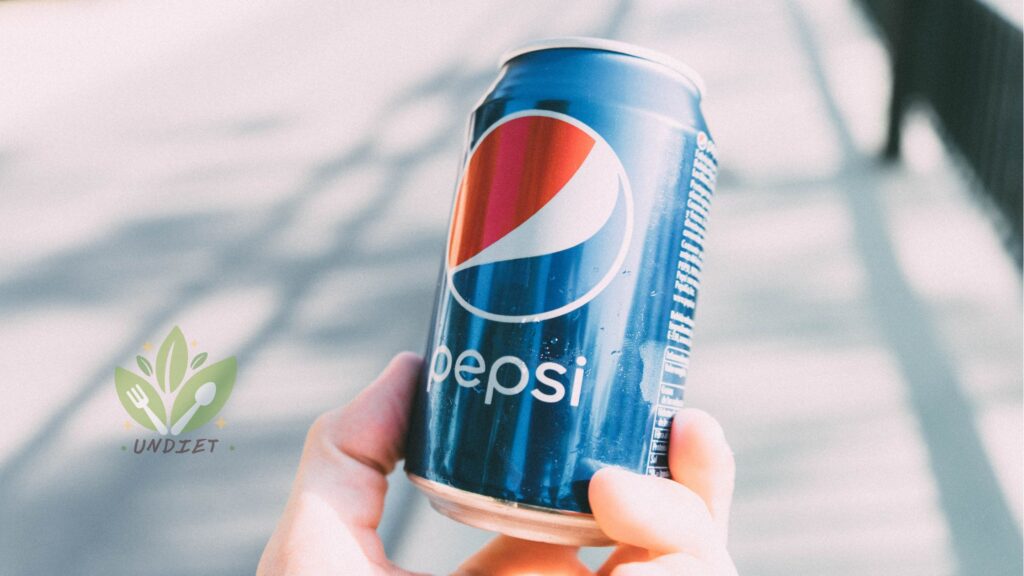
Artificial components refer to any man-made substance that is added to a product. These can range from preservatives and flavor enhancers in food to synthetic materials in clothing and furniture. While some artificial components are considered safe for use, others have been linked to health concerns such as allergies, hormonal imbalances, and cancer. Consumers need to be aware of the ingredients in the products they use and make informed choices on what they expose themselves to.
Key Ingredients in Diet Pepsi
Key Ingredients: Diet Pepsi contains artificial sweeteners like aspartame and acesulfame potassium (Ace-K), carbonated water for fizziness, caffeine for energy boost, a small amount of sodium for flavor enhancement and preservation, and zero calories, making it suitable for calorie-conscious consumers.
Understanding the Role of Each Ingredient
The ingredients in Diet Pepsi Nutrition Facts play a crucial role in the taste and nutritional content of the beverage. Some of the primary ingredients include carbonated water, high fructose corn syrup, caramel color, phosphoric acid, caffeine, citric acid, and natural flavors. These ingredients work together to create the distinct taste of Diet Pepsi while keeping its calorie count low. The use of artificial sweeteners like aspartame and acesulfame potassium also contributes to the drink’s overall flavor profile. While Diet Pepsi may not be the healthiest option available due to its artificial ingredients, it remains a popular choice for those looking for a low-calorie alternative to regular soda.
Diving into the Diet Pepsi Nutrition Facts Profile
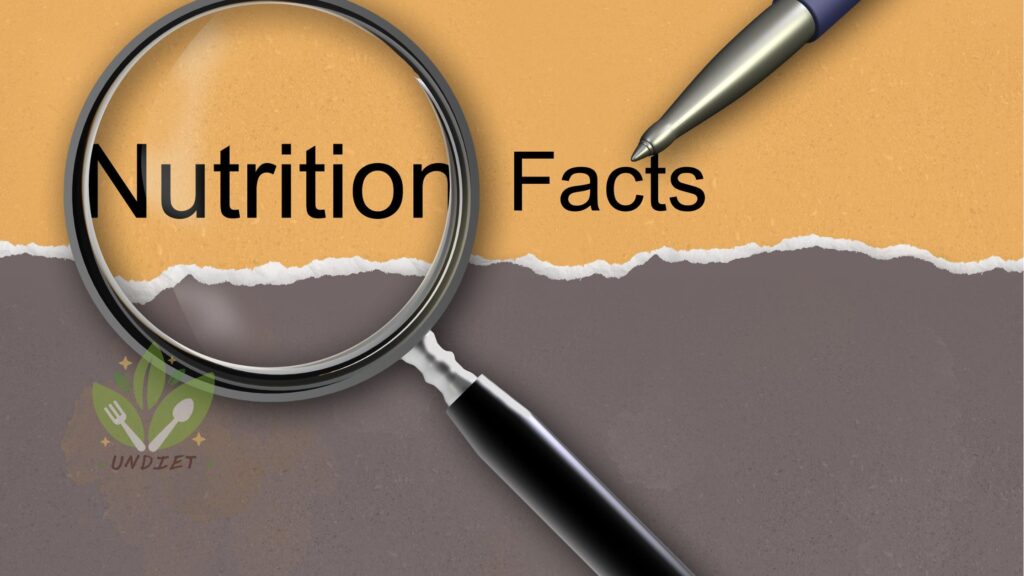
Calories are units of energy that are found in food and drinks. They are essential for our bodies to function optimally, but consuming too many calories can lead to weight gain and other health issues. Understanding the number of calories in the foods we eat is important for maintaining a healthy diet and lifestyle. The recommended daily calorie intake varies depending on factors such as age, gender, height, weight, and physical activity level. It’s crucial to strike a balance between calorie consumption and energy expenditure to maintain optimal health.
The Nutritional Breakdown of Diet Pepsi
The term “supporting nutrition” refers to the use of dietary supplements to enhance or support one’s overall nutritional intake. These supplements can include vitamins, minerals, herbs, and other natural substances that provide essential nutrients that may be lacking in a person’s diet. Supporting nutrition with dietary supplements can aid in maintaining optimal health and wellness, as well as addressing specific health concerns or deficiencies.
However, it is important to consult with a healthcare professional before starting any new supplement regimen to ensure safety and efficacy. Additionally, obtaining necessary nutrients through whole foods should still remain a top priority for optimal health.
Comparing the Nutritional Value with Other Sodas
Sodas are beverages that have gained immense popularity worldwide. They come in different flavors, sizes, and sugar content. However, not all sodas are created equal in terms of nutritional value. Some sodas contain high amounts of added sugars and calories, while others may be low in calories but still contain artificial sweeteners.
Regular soda, for instance, contains an average of 150 calories and 40 grams of sugar per 12-ounce can. On the other hand, diet soda has no calories or sugar but may have artificial sweeteners like aspartame or sucralose. It is important to read the nutrition labels carefully before consuming any soda to make an informed decision about its nutritional value.
The Calorie Count: Is it Really Zero?
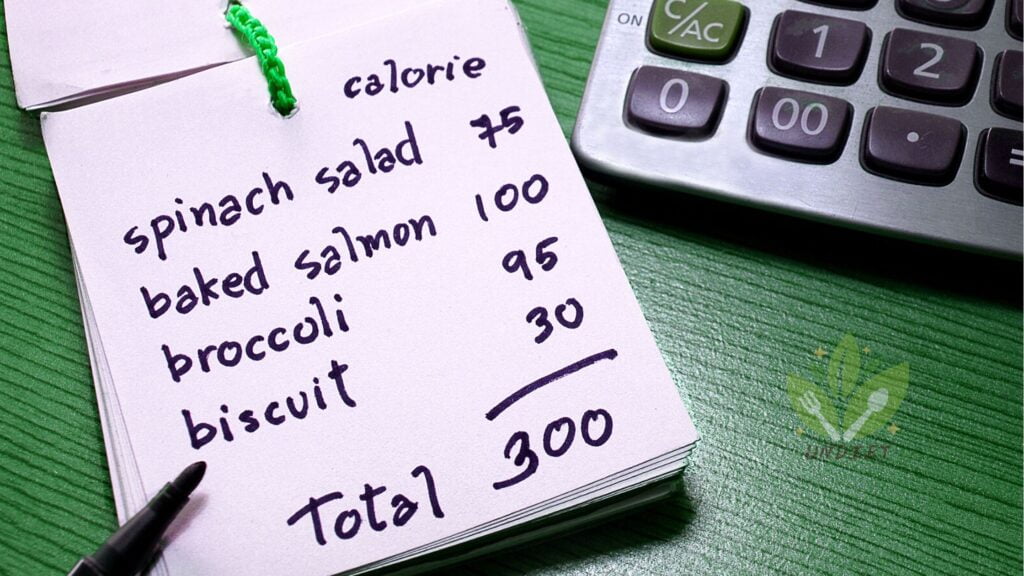
Diet Pepsi is often marketed as a zero-calorie beverage, but is it truly calorie-free? While Diet Pepsi does contain fewer calories compared to regular Pepsi, it doesn’t mean that it has absolutely zero calories. The FDA allows manufacturers to label products as “zero calories” if they contain less than 5 calories per serving. So, while the calorie count may be extremely low, it’s not technically zero.
Analyzing the Calorie Content
Calorie analysis is the process of determining the amount of energy in food and drinks. By analyzing the number of calories in a particular food or beverage, individuals can better understand how it fits into their overall dietary needs. This information can be particularly useful for those looking to manage their weight or improve their overall health. However, it’s important to note that calorie analysis should not be the sole focus of a healthy diet, as other factors such as nutrient content and portion size also play critical roles.
How Does ‘Zero Calorie’ Work?
To achieve its zero-calorie label, Diet Pepsi replaces sugar with artificial sweeteners. This substitution allows the beverage to maintain its sweet taste without adding any calories. By using non-nutritive sweeteners, Diet Pepsi offers a calorie-free alternative to regular soda options.
Health Implications of Consuming Diet Pepsi

When considering any decision, it is important to weigh the potential benefits and risks involved. This applies to everything from personal choices to business decisions. By analyzing the potential benefits and risks, you can make a more informed decision that aligns with your goals and values. It is crucial to take into account both the short-term and long-term effects of your decision, as well as any potential unintended consequences.
Additionally, seeking advice from trusted sources or experts in the field can also help you gain a better understanding of the potential outcomes. Ultimately, being aware of the potential benefits and risks allows you to make a more calculated decision that maximizes positive outcomes while minimizing negative ones.
Potential Health Benefits of Diet Pepsi
Being calorie-conscious means being mindful of the number of calories in the food you consume. It is essential for those trying to lose or maintain weight. One way to support calorie-consciousness is by tracking your daily calorie intake using a food journal or app. This can help you make informed food choices and stay within your calorie limit. Another way is to choose nutrient-dense foods that are lower in calories but high in fiber, protein, and other essential nutrients. Additionally, practicing portion control and avoiding high-calorie drinks can also aid in supporting calorie-consciousness.
Possible Health Risks
Health risks refer to the potential danger or harm that a person may face due to various factors such as lifestyle choices, environmental factors, genetics, and medical conditions. These risks can have both short-term and long-term effects on an individual’s physical and mental well-being. Some common health risks include obesity, smoking, alcohol abuse, poor diet, lack of exercise, stress, exposure to toxins and pollutants, and genetic predisposition to certain diseases.
It is important to identify and address these risks early on to prevent or manage any potential harm to one’s health. Regular check-ups with healthcare professionals can also help identify any underlying health conditions and minimize associated risks.
Diet Pepsi and Weight Management

The term “calorie-free advantage” refers to food or drinks that contain little to no calories, which can be beneficial for those trying to lose weight or maintain a healthy diet. By consuming calorie-free products, you can reduce your overall caloric intake without sacrificing taste or satisfaction. However, it’s important to note that not all calorie-free products are created equal and some may contain artificial sweeteners or other additives that could have negative health effects if consumed in excess. It’s best to consume these products in moderation and as part of a balanced diet.
Can Diet Pepsi Aid in Weight Loss?
Diet Pepsi’s calorie-free nature may complement weight loss efforts by providing a low-calorie beverage option. With zero calories, it aligns with strategies that prioritize calorie reduction. Consuming Diet Pepsi supports weight loss initiatives emphasizing calorie control.
Is Diet Pepsi a Healthier Alternative to Regular Pepsi?
When it comes to calorie-conscious individuals, Diet Pepsi may offer a potentially healthier option compared to regular Pepsi. With zero calories, it can be seen as a substitute for those focusing on calorie management. Is Diet Pepsi a better choice for those conscious of calorie consumption?
Frequently Asked Questions about Diet Pepsi Nutrition Facts
How much sugar is in a Diet Pepsi?
Diet Pepsi contains zero sugar, thanks to artificial sweeteners like aspartame and acesulfame potassium. A 12 oz. can of Diet Pepsi has about 35 mg of caffeine, along with zero calories, sodium, and carbohydrates.
What is the sweetener in Diet Pepsi?
The sweetener used in Diet Pepsi is aspartame. Aspartame is a low-calorie artificial sweetener that is about 200 times sweeter than sugar. It has been approved by the FDA for use in food and beverages, although some people may have concerns about its safety.
Is Diet Pepsi really 0 calories?
Diet Pepsi is advertised as having 0 calories, making it a popular choice for those watching their calorie intake. However, it’s important to note that Diet Pepsi contains artificial sweeteners, which some individuals may want to avoid. Moderation and reading the label can help make informed choices about beverage consumption.
Is Pepsi healthier than Diet Pepsi?
While both Pepsi and Diet Pepsi have different nutritional profiles, it’s important to note that regular Pepsi contains sugar and calories, while Diet Pepsi has no calories or sugar. However, both drinks should be consumed in moderation as part of a healthy diet. Ultimately, the healthiest option is to drink water instead of sugary or artificially sweetened beverages like Pepsi caffeine.
Does Diet Pepsi contain any vitamins or minerals?
Diet Pepsi does not provide significant amounts of vitamins or minerals. With zero grams of sugar and fat, it is low in calories. However, it does contain caffeine and artificial sweeteners. While it may not offer nutritional value, Diet Pepsi can be a suitable choice for reducing calorie intake.
Is Diet Pepsi good for dieting?
Diet Pepsi is a suitable choice for dieting due to its low-calorie content and absence of sugar. With zero calories, it can be consumed by those on a diet. However, moderation is key as Diet Pepsi still contains artificial sweeteners. Remember, effective weight loss requires a balanced diet and exercise.
Do I count Diet Pepsi in my daily calorie count?
Diet Pepsi, with zero calories, does not need to be included in your daily calorie count. However, it’s important to maintain a balanced diet overall. Drinking excessive amounts of Diet Pepsi may have adverse effects due to artificial sweeteners. Limit consumption and consider healthier beverage alternatives.
Is diet soda terrible for us?
The health effects of diet soda are a topic of ongoing debate. Some studies suggest a link to obesity, diabetes, and other health issues. However, the evidence is inconclusive, and experts argue that diet soda can be helpful for weight control. Moderation is key, considering individual factors like diet and lifestyle.
What are Diet Pepsi Nutrition Facts?
Dive into the Diet Pepsi Nutrition Facts! With zero calories, sugar, fat, protein, and fiber, it’s a guilt-free choice. A 12 fl oz serving contains 35 mg of caffeine and a blend of carbonated water, caramel color, phosphoric acid, aspartame, potassium benzoate, natural flavor, citric acid, and caffeine.
Does Pepsi make you fat?
Consuming excessive calories from any source, including Pepsi, can contribute to weight gain. However, drinking Diet Pepsi in moderation as part of a balanced diet is unlikely to cause significant weight gain. Regular Pepsi contains sugar and calories, which can contribute to weight gain if consumed excessively. Proper portion control and regular physical activity are key factors in maintaining a healthy weight, regardless of beverage choices.
Conclusion
In conclusion, of Diet Pepsi Nutrition Facts, it’s important to consider the nutritional profile and ingredients of Diet Pepsi before making it a part of your regular diet. While it does offer a zero-calorie option and may have some potential health benefits, it also comes with possible risks. It’s essential to be mindful of your overall dietary habits and consume Diet Pepsi in moderation. If you’re looking for a healthier alternative to regular soda, there are other options available that provide more natural ingredients and fewer artificial additives. Always consult with a healthcare professional or registered dietitian for personalized advice on your specific nutritional needs and goals.

